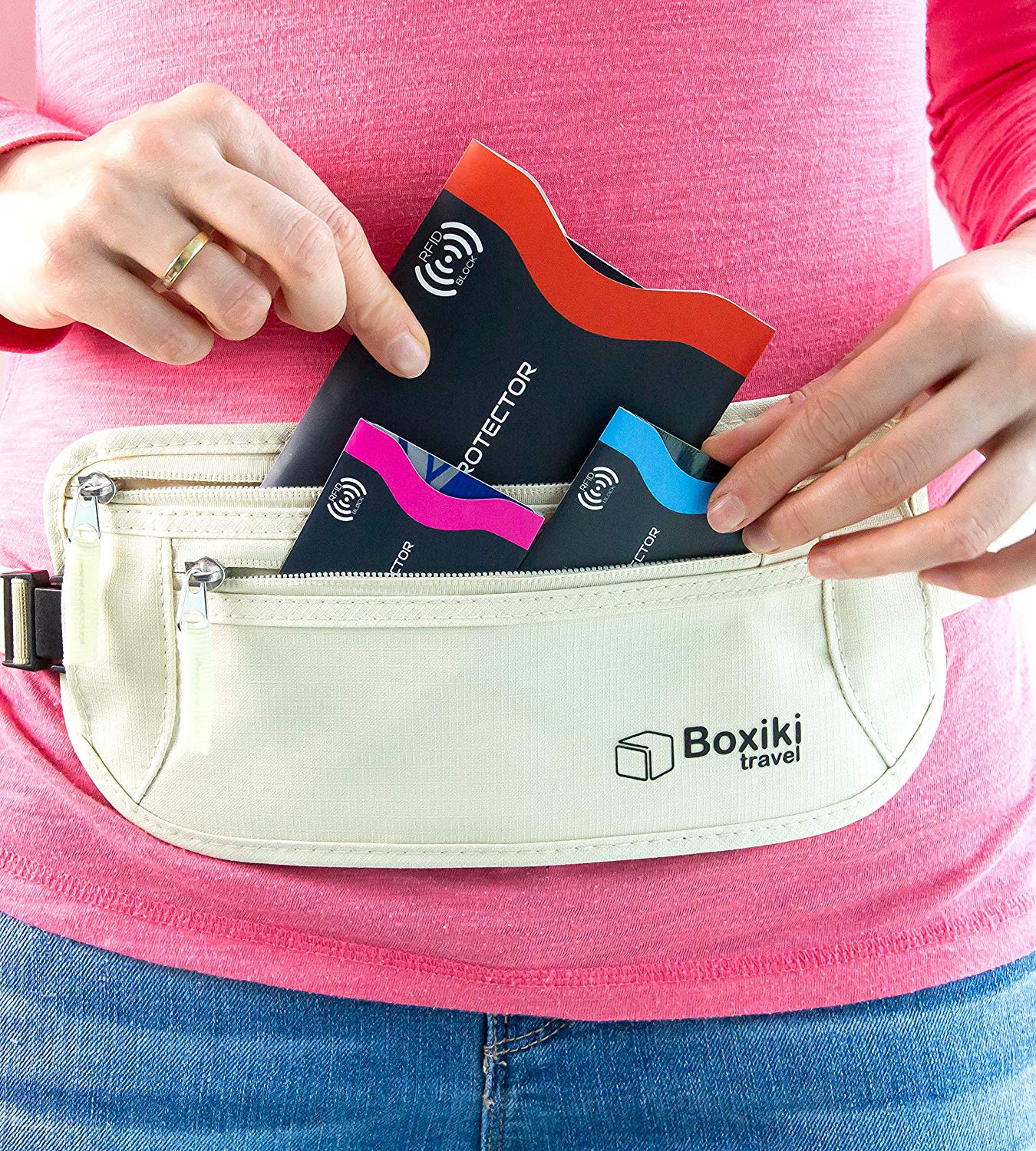Before, choosing wallets is very simple. You can either get a bifold, a trifold, or a clutch. The only choices you have are more pockets, fewer pockets, leather, or synthetic. But as technology advances, many other kinds of wallets are also being introduced in the market. And today, there are now what we call RFID-blocking wallets and sleeves.
RFID-blocking wallets and sleeves are being used today to help insulate people from a very particular brand of electronic pickpocketing, which is known as RFID skimming. Today, pickpockets no longer have to pick your pockets anymore. It’s because they can now access your credit card data wirelessly without you knowing, which is through RFID.
But do you think RFID blocking really works? And what is it anyway? If you have the same questions in mind, then you’ve come to the right place. Today, we are going to tell you more about RFID blocking and if it is really useful.
What is RFID?
RFID stands for Radio Frequency Identification. It is a method of transferring data across radio waves. Before, RFID is used to track inventory. What happens is that a scanner picks up and reads the data on credit cards. It has had many uses over the years, including allowing people to make a contactless payment in some credit cards.
RFID is not the same as EMV cards or Europay, Mastercard, and Visa. If you have these cards, it does not mean that they are automatically RFID-enabled. To know if you have an RFID card, try to look for radio waves on your cards. It is like the symbol you see on phones and computers when you are connected to Wi-Fi.
How RFID Skimming Works
RFID chips are sometimes used in credit cards, transport passes, and as well as passports to allow contactless payments and fast scanning. The chips that these items contain emit radio signals that anyone with a reader can try to intercept. Theoretically, criminals can purchase RFID readers for less than a hundred dollars, then sneak up behind people and scan their pockets or bags, trying to steal information or money.
When credit cards that are RFID-enabled were introduced in the United States, they transmitted credit card numbers, and expiration dates across radio waves without encryption. This means that if someone who has an RFID reader was nearby, they could easily intercept that data. And that action is what we call credit card skimming.
RFID Is Not a Threat Anymore
Before, the supposed threat with using an RFID-enabled card is that the information that might be skimmed from you can be used to steal your identity or push through fraudulent transactions using your details. But there’s a problem with that theory, which is that the information that is stored and transmitted on your card is no longer enough to complete a transaction.
In the present time, credit cards transmit a one-time transaction code that is encrypted. It means that when your card is skimmed using an RFID reader, it will not give your name or billing address. It will also not include the 3-digit code on the back of your card that is important for online transactions. The only information that can be skimmed is those which are not enough to enable a thief to commit another crime.
For passports, on the other hand, since everything that is transmitted is encrypted, the information will not be read without the key. It means that it can only be read by authorized and authenticated readers. You also need to open the passport to the photo page to be able to scan the chip, and most modern passports today already have covers that can block RFID signals.
Does RFID Blocking Really Work?
Even if RFID skimming is no longer threatening these days, some people still choose to use RFID-blocking wallets and sleeves. But the question is, do they work? Well, the answer is yes, RFID blocking works. It’s because radio waves are relatively easy to block and interrupt, which is how RFID-blocking wallets and sleeves work.
When you use an RFID-blocking wallet, your credit card will be encased in a material that interferes with radio waves. If it is properly constructed, it will block electromagnetic fields, and it will prevent communication between your cards and RFID scanners.
Are RFID-Blocking Wallets Necessary?
All of this boils down to the question, is it important to use RFID-blocking wallets and sleeves? Well, if your credit cards don’t have RFID chips, then you obviously do not need one. And even if you have RFID-enabled cards, the chance of being scanned maliciously is very low. But the possibility is still there.
Therefore, needing an RFID-blocking wallet depends on how risk-tolerant you are. If you have money to spare for peace of mind, then you can go ahead and purchase one. But if you don’t think that risk is worth worrying about, then you can always feel free to pass over these wallets or sleeves.
RFID-blocking is indeed useful, especially for people who travel to lots of places most of the time. But aside from using RFID-blocking wallets and sleeves, a more important thing that you need to do to protect yourself from credit card fraud is to review your transactions regularly and report any unauthorized activity immediately.

